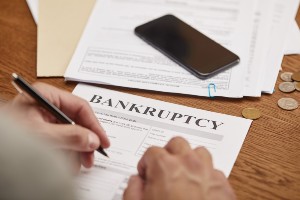
What should you do when you get a court summons for a debt and what steps should you take in response to legal action by a creditor?
What is a Court Summons?
A court summons is a legal document that is sent to you by a creditor or debt collector. It informs you that you are being sued for an outstanding debt and requires you to answer the allegations made against you in court.
The summons specifies when and where you need to appear in court, as well as the deadline for your response. It is essential that you respond to the summons within the given time frame, even if you believe the debt is not yours or you dispute the amount owed.
What to Do If You’re Served
Once you receive the summons, you should carefully review it. It’s also a good idea to consult with a qualified attorney, especially if you are unsure of what to do next. An attorney can help you understand your legal rights and obligations. They’ll also provide guidance on the best course of action in your particular case.
Before the court hearing, you may also be given the opportunity to engage in settlement negotiations with the creditor. This means you and the creditor may agree to settle the debt for a lesser amount or work out a payment plan that is more manageable for you.
If you can come to an agreement, you should put it in writing and file it with the court. An attorney may be able to assist you with this too.
Trials Related to Debt
If you don’t settle and the case goes to trial, one of two things can happen.
The court could rule in your favor and determine you don’t owe the debt. This is usually only the case when there’s a mistake or you were the victim of fraud.
Chances are, if the debt is legitimate, and the court rules in favor of the creditor, they may be granted a judgment against you. A judgment allows the creditor to legally collect the debt in a variety of ways, including:
- Wage garnishment
- Bank account seizure
- Property liens
The creditor may also have the ability to charge interest on the debt or add attorney fees to the total.
Receiving a court summons for debt is not an easy situation to deal with, but’s important to remember that it’s not the end of the world either. The key is to act promptly and seek professional help if needed. In some cases, debt settlement will be your best option. For other people, bankruptcy can put an end to collection efforts and offer a fresh financial start.
To learn more about what you can do if you’ve received a court summons related to debt, contact the Law Offices of Robert M. Geller at 813-254-5696 to schedule a free consultation with an experienced attorney.



























![Signs That You May Need to File Bankruptcy [Infographic]](https://djml3wkzi26ea.cloudfront.net/wp-content/uploads/2021/01/signs-chap7-v-chap13.jpg)
![How To File for Bankruptcy [Infographic]](https://djml3wkzi26ea.cloudfront.net/wp-content/uploads/2020/07/bankruptcy-steps-infographic-web.jpg)










